Mountain biking in the coldest months isn’t always the most pleasant experience and having one of the best winter mountain biking jerseys at your disposal makes a big difference when the temperature drops.
Winter mountain biking jerseys designed specifically for winter riding are usually made from heavier-weight materials than summer mountain biking jerseys and can be a real asset when worn on their own on milder days or paired with a baselayer as the mercury drops.
We’ve all heard of layering up, but getting it right when mountain biking isn’t always easy – too many layers and you’ll be melting on the climbs, too few and your teeth will be chattering while your riding buddies stand around chewing the fat.
Assuming you’re not dealing with torrential rain, you can even do away with a waterproof mountain bike jacket in many situations when wearing a good winter jersey. This means you won’t be faced with adding or removing a layer every 10 minutes during your ride.
Best winter mountain bike jerseys in 2025
Rockrider Mid-Season Long-Sleeved Mountain Bike Jersey EXPL 500
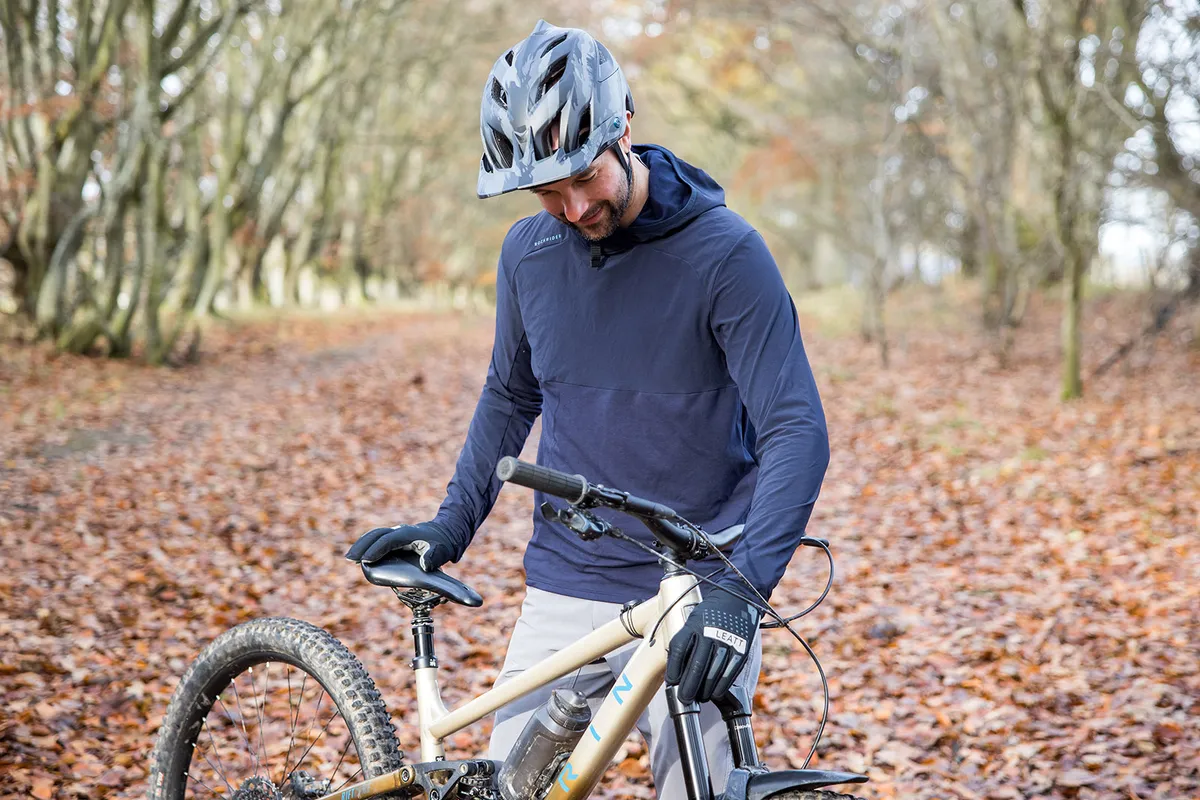
- £35 as tested
- Pros: Versatile fit with soft-feeling fabric; performance-boosting features; well-priced; over- or under-helmet hood
- Cons: Loaded pockets can tug at shoulders
The Rockrider EXPL 500 offers excellent value for money, with the versatile jersey performing well in a range of conditions and temperatures.
Zipped pockets and a well-designed hood help the RockRider compete with jerseys three times it's price, and give a casual look.
We were impressed by its cold-weather performance and adaptability to changing weather conditions.
Altura Esker Trail Long Sleeve Jersey
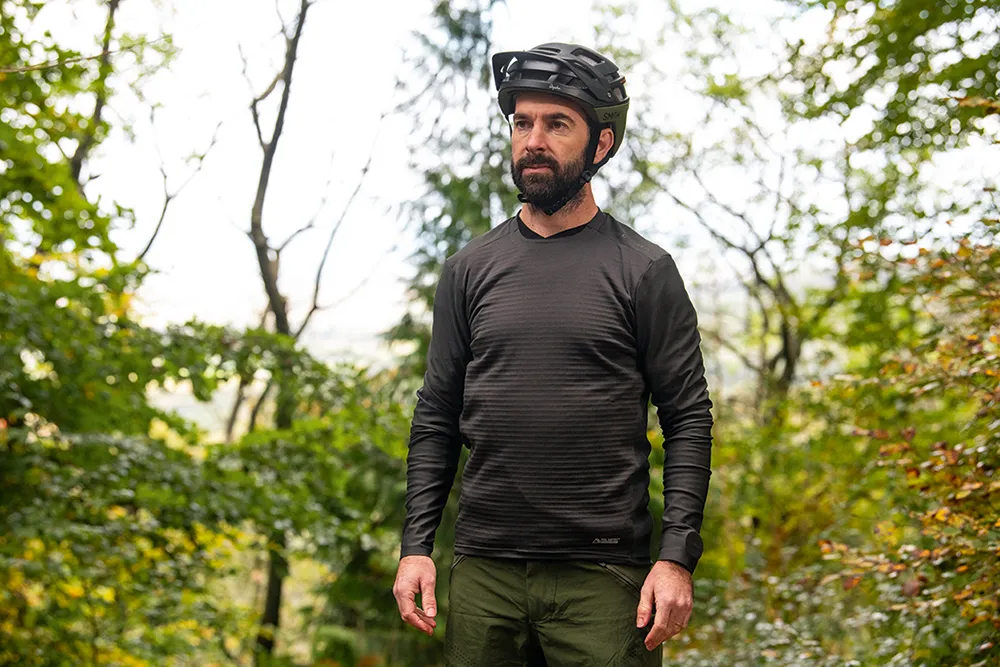
- £50 as tested
- Pros: Shrugs off harsh winter weather; competitively priced
- Cons: Best reserved for proper winter riding
For a mid-market jersey, the Altura Esker is woven from impressively technical materials and performs accordingly. The Polartec PowerGrid fabric forms a windproof chest panel, while the Esker features a Durable Water Repellent coating for the wet.
The Esker also fits snugly and has a high-quality feel. So much so, it's best left for the coldest days, otherwise you could overheat when it's milder.
Endura Singletrack Fleece jersey
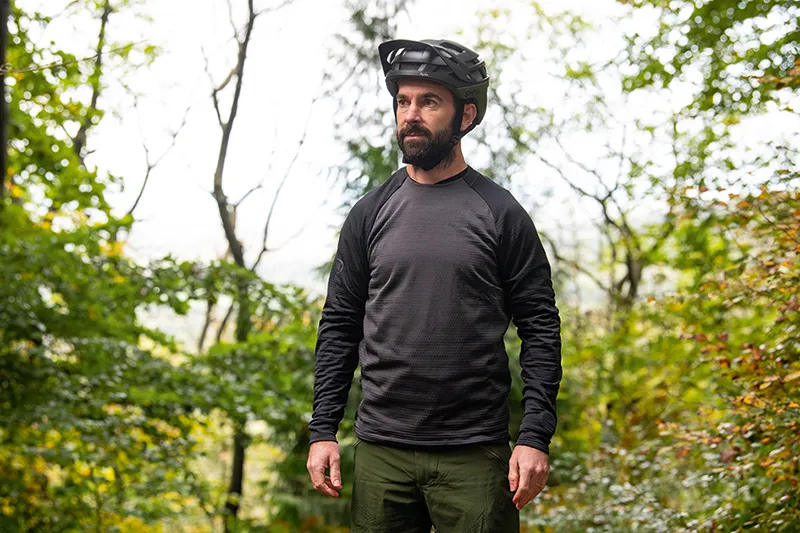
- £60 as tested
- Pros: Cosy and well-fitting; warm and wicks sweat
- Cons: Doesn’t block wind across the sleeves and front of jersey as well as some
Unless it’s tipping down or snowing, the Singletrack Fleece – which Endura says is made from 85 per cent recycled materials – should be adequately insulated to wear as a top layer.
Our tester praised the comfort of the jersey’s soft fabric and its breathability when putting in efforts.
Fox Defend Thermo Hooded Jersey
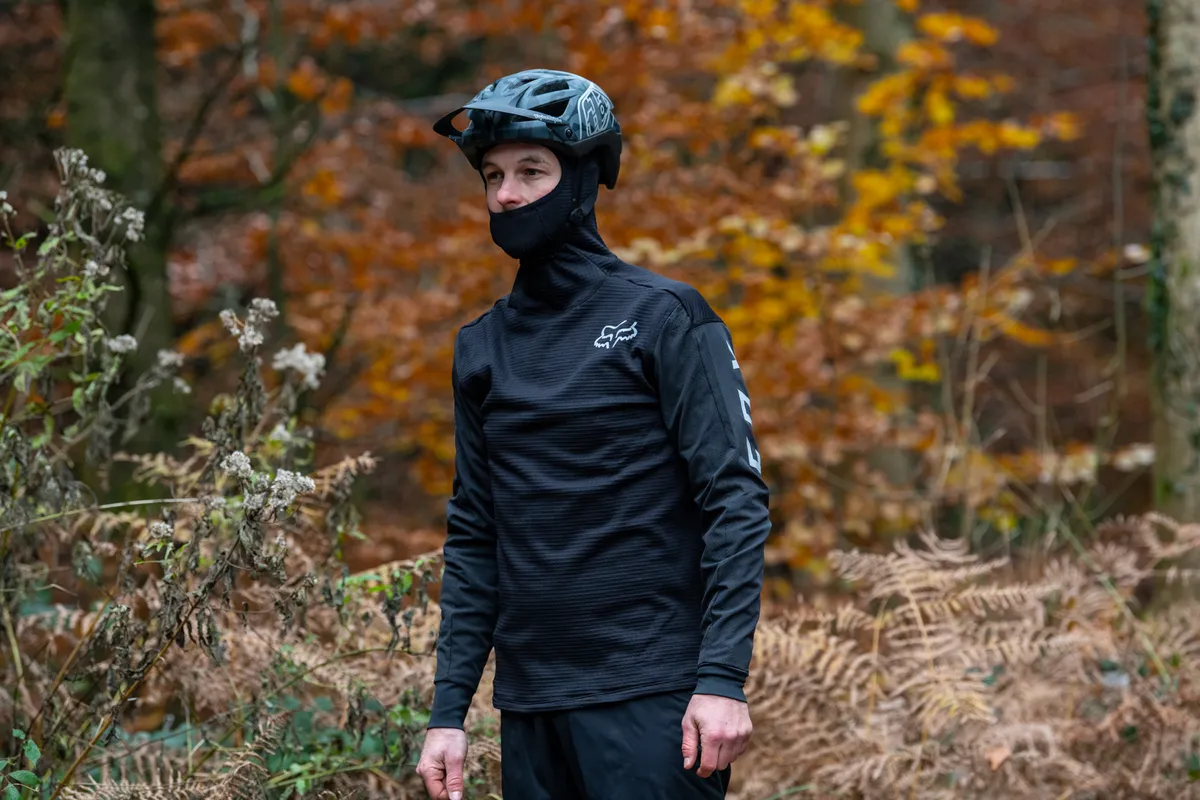
- £110 as tested
- Pros: Comfortable and adaptable; unusual style
- Cons: Polarising design
Although Fox says the Defend Thermo Hooded jersey can be worn in spring, autumn and winter, our tester found it warm enough to wear on its own on cold days. The fit is loose enough to accommodate a baselayer beneath and a gilet on top if it’s really chilly.
The Polartec Power Grid material proved windproof as well as breathable when working up a sweat on climbs.
The jersey’s in-built hood and balaclava may not be to everyone’s taste, but they keep your head and face warm. You can lift the hood off your head to wear as a snood.
Fox Defend Thermal Long Sleeve Jersey
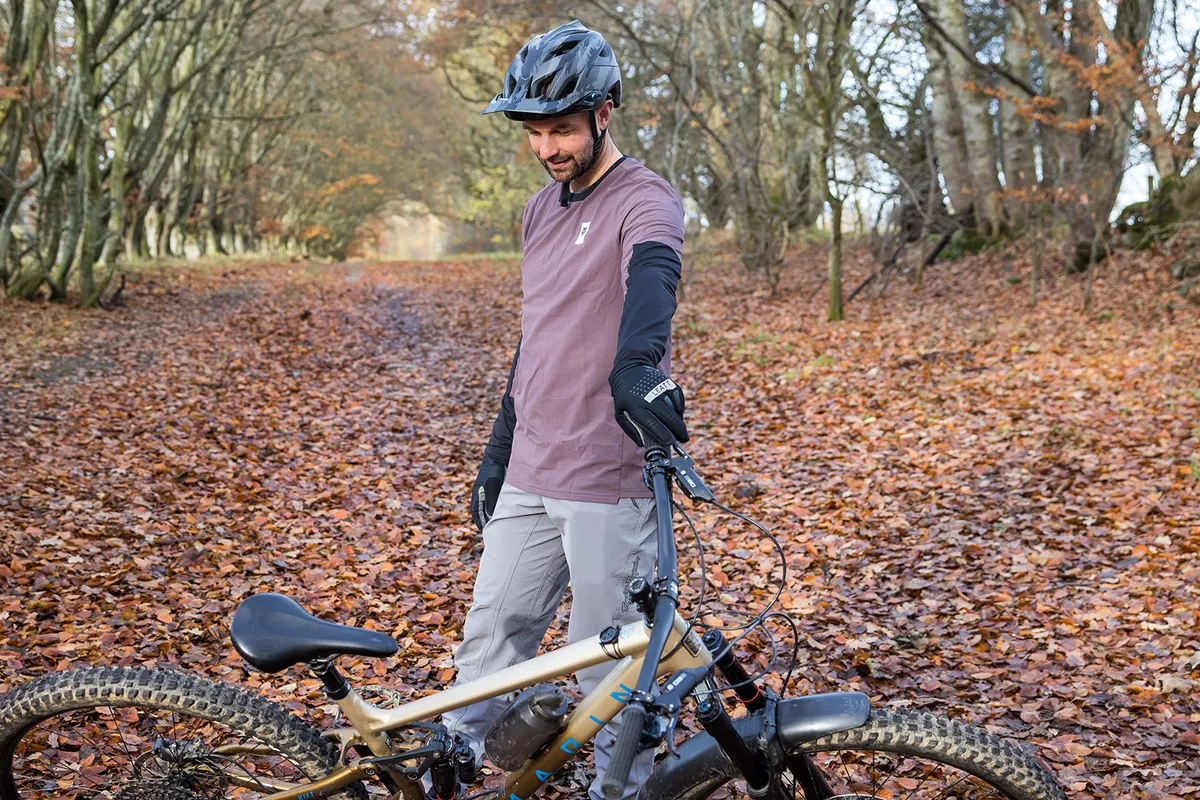
- £110 / $125 / €100 / AU$150
- Pros: Soft and comfortable; versatile; warm and wind resistant; clean looks with a good cut
- Cons: Sizes up large; pricey
The Defend resists sweat saturation well and remains comfy when wet.
The jersey works well as a single layer or as a base layer when paired with a jacket, although it does size up large so a smaller size would fit under other garments better.
We also find the DWR-coated elbow fabric to repel water well though couldn't work out what performance benefit it added.
Troy Lee Designs Skyline Chill
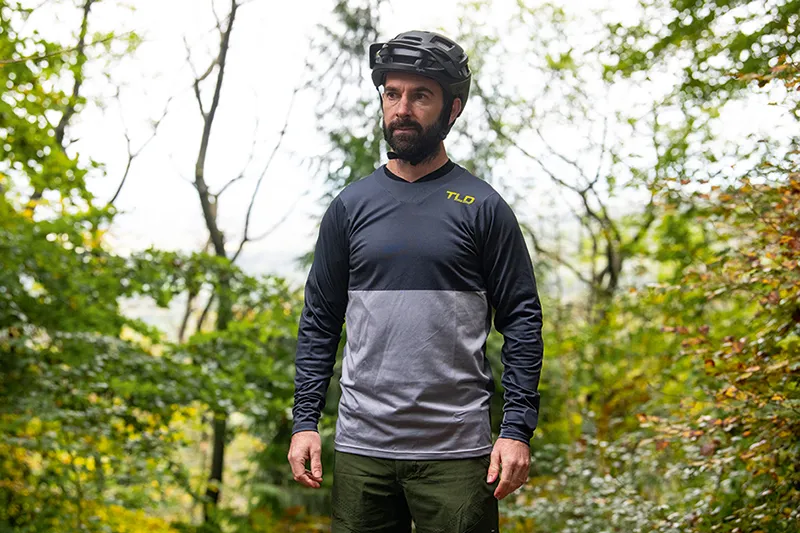
- £80 as tested
- Pros: Fits superbly; perfect for changeable weather
- Cons: Not as thick as some; pricey
The Troy Lee Designs Skyline Chill is an insulated jersey for riding when a jacket is unwarranted, but a normal top won’t suffice. Its versatility helps compensate for its price.
It would work best over a baselayer on a crisp spring day that warms up later. The Skyline jersey is light and breathable enough that you shouldn’t roast when your heart rate rises in winter.
Rapha Trail Windblock
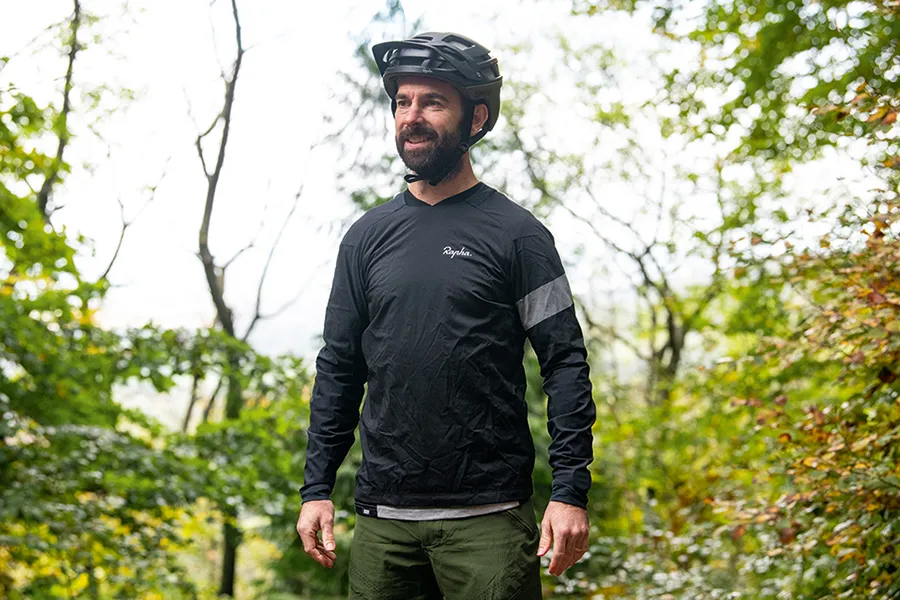
- £100 as tested
- Pros: Premium performance and price to match; spot-on sizing
- Cons: Pricey
Made from Rapha’s Merino wool blend, the Trail Windblock jersey proved warm on nippy days and shed sweat when the temperature rose. It even repelled light rain.
For its price, it could do with extras, such as a lens wipe and pockets. But the windproof panel on the chest helped this comfortable, lightweight top keep out the cold.
Scott Trail Storm Jersey
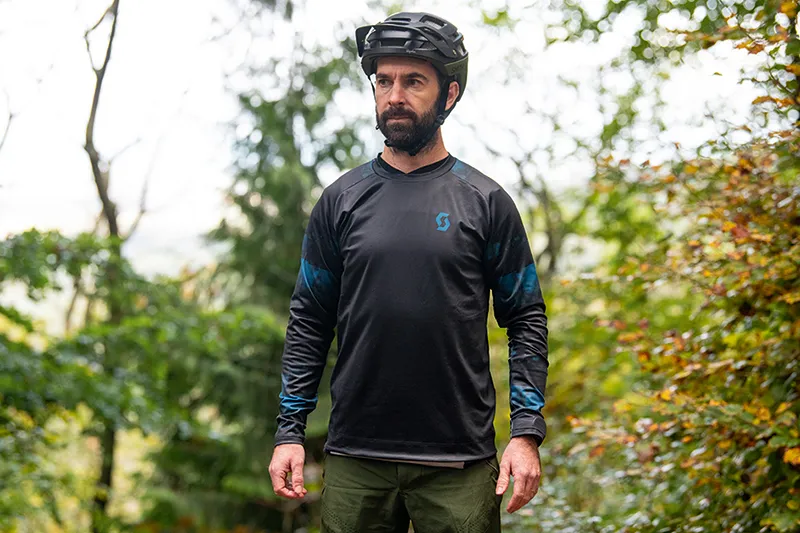
- £83 as tested
- Pros: Highly insulated
- Cons: Lacks breathability
The Scott Trail Storm's thick, comfortable fabric and snug fit make it ideal for wearing over a baselayer in deep winter.
But issues arise when your temperature goes up – despite its mesh panels, the Trail Storm doesn’t breathe effectively. This could see you cooking on tough ascents, which is disappointing for a jersey costing this much.
Also consider...
Leatt Jersey MTB Trail 4.0
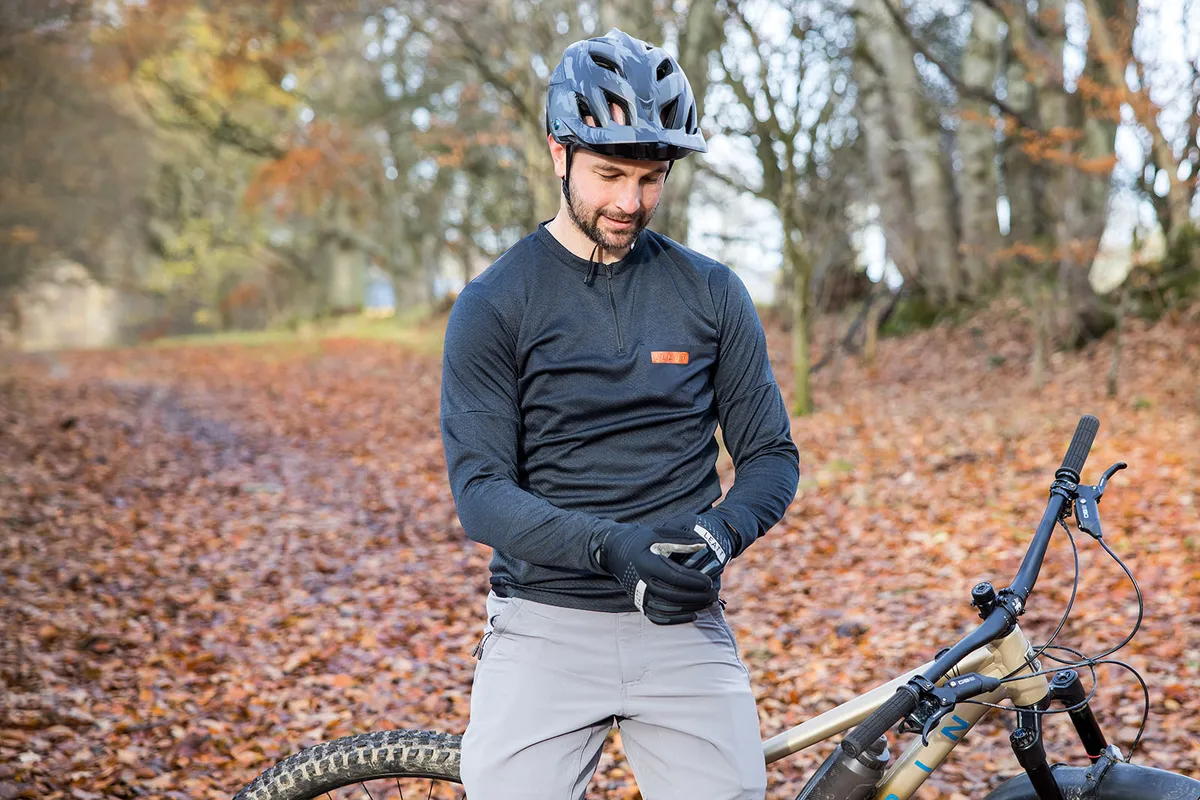
- £70 as tested
- Pros: Useful back pockets; versatile material; stays comfy when wet
- Cons: Zip causes collar discomfort; pricey; over-complicated design
Leatt's Jersey MTB Trail 4.0 features a sporty fit that can be worn by itself or with layers for ranging conditions.
The jersey remains comfortable when saturated with sweat and continues to retain heat well with the tight, long fit keeping drafts away.
While the zip adds practicality, we found it caused irritation around the collar, taking away from the jersey's overall comfort.
Madison Zenith Thermal jersey
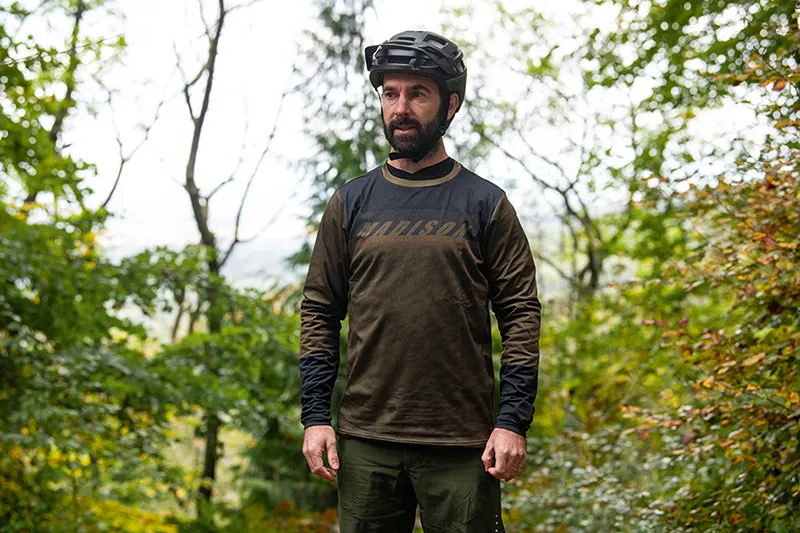
- £50 as tested
- Pros: Generally warm
- Cons: Poor fit
The fleecy, soft fabric of the Madison Zenith Thermal jersey proved pleasant to wear and insulated the body. It's not hugely breathable, but when sweating, the relaxed fit helped release heat.
This was also the jersey's downfall. When confronted with a headwind, the loose neck let cold air through to chill the chest. Still, it's a decent choice for the price.
Buyer’s guide to winter mountain bike jerseys
Materials
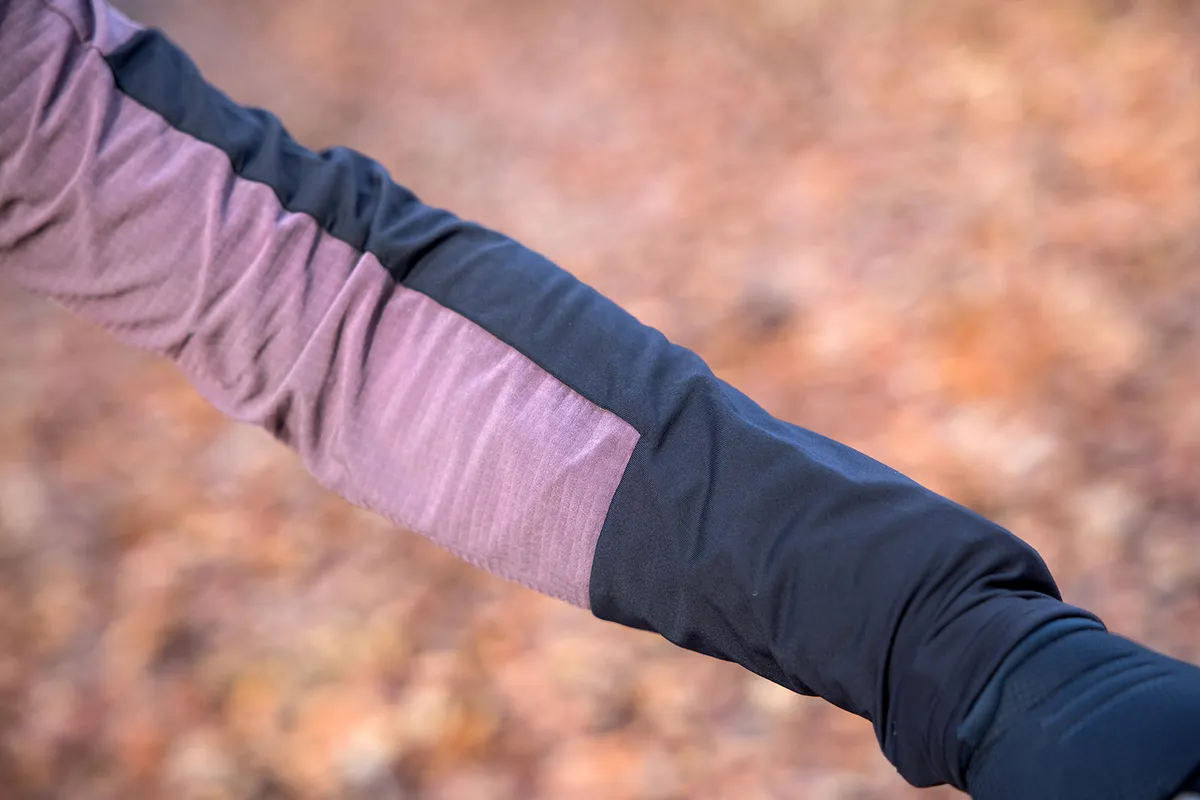
Winter mountain bike jerseys often use thicker, more weather-resistant materials than their summer counterparts, with many incorporating fleece and softshell elements in their construction.
Fleece materials work well at insulating you on cold days and enable perspiration to evaporate from your skin while keeping outside humidity away.
Softshell materials keep windchill at bay. They usually feature on the front of winter jerseys to keep wind generated by moving from cooling your core body temperature.
The best winter MTB jerseys will balance insulating and protective materials with sweat-wicking and quick-drying fabrics to save you from overheating.
This also makes them usable as single layers in spring and autumn or as baselayers on the coldest of days. It’s always best to consider how hard you will push and the temperature before leaving the house.
Cut and fit
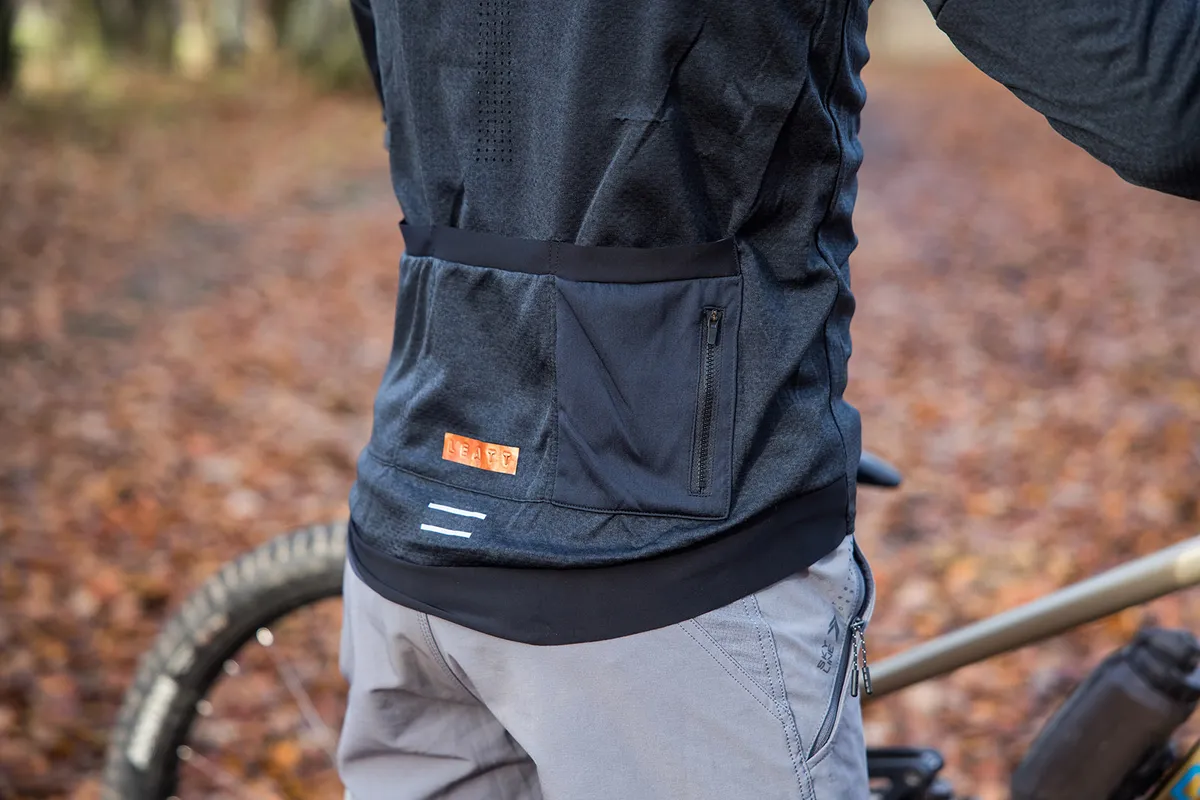
Winter mountain bike jerseys usually feature a long-sleeved design to keep your arms warm.
Long torsos will keep drafts from entering the bottom of the jersey. You can also tuck a long body into your winter mountain bike trousers if you’re using your jersey as a baselayer.
Closer-fitting and stretchy jerseys will enable you to layer clothing more easily under your waterproofs and reduce flapping on windy days.
Additional features
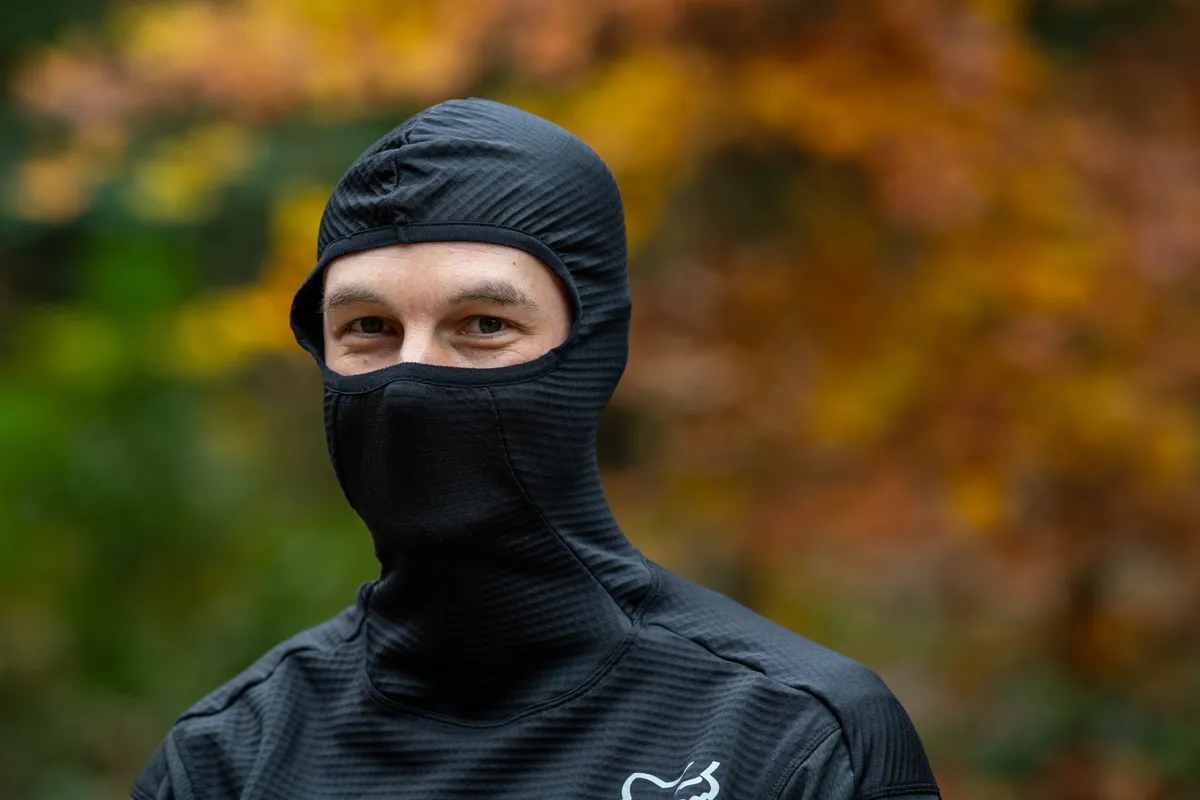
Some winter mountain bike jerseys will have additional cold-weather features. Some have in-built balaclavas to keep your neck and face from being exposed to the cold.
Thumb loops are also used and keep long sleeves in place, while closing the gap between your jersey and gloves where cold air can seep.
As with summer mountain bike jerseys, many jerseys will feature an in-built lens wipe to get rid of rain and mud from your mountain bike glasses or goggles.







